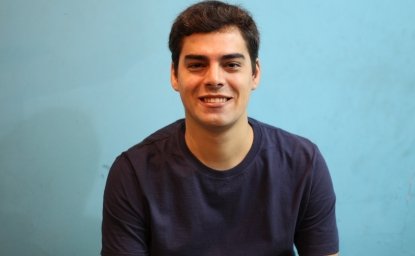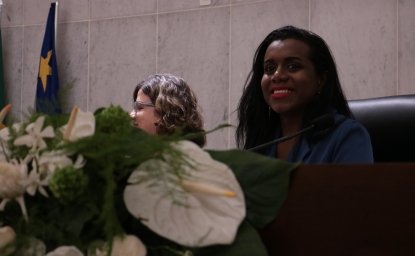
A blog of the Wilson Center
Innovative policy solutions often require fresh perspectives. Toward that end, the Brazil Institute is proud to be collaborating with the Colégio Dante Alighieri in São Paulo in support of Colégio Dante’s GEN initiative. Interdisciplinary Project Practice Learning (IPPL) is more than an interdisciplinary Science, Technology, Engineering, Arts, and Math (STEAM) initiative because it also integrates history, philosophy, and sociology. The iniative uses new methodologies and approaches to learning to promote critical thinking, communication, and collaboration—skills needed to tackle the world’s most pressing issues to come. The partnership with the Brazil Institute focuses on merging this sense of innovation and creative problem-solving with a better understanding of public policy creation and citizen engagement, so that young people can feel empowered to make a difference in their communities in a "maker culture".
As part of this partnership, the Brazil Institute hosted the first annual IPPL Study Tour, a week-long exchange in Washington, DC aimed to provide participating students with exposure to real-world challenges and opportunities for policymaking. The students who attended the trip were winners of Colégio Dante’s first Entrepreneurship Challenge, in which all high school students presented social impact projects focused on São Paulo's urban problems and social inclusion. The two award-winning projects aimed to support the growing homeless population and their health needs, and address the lack of recycled waste and environmental education in the city. These students had the opportunity to present their ideas to officials at the Inter-American Development Bank and the Wilson Center, visit the United States Congress, and learn about the U.S. judicial system with Senior Judge Peter J. Messitte at the Federal District Court in Maryland.
The winning projects were selected from over 150 entries, through a competitive review process hosted at Colégio Dante Alighieri, and judged by representatives from the public and private sectors, scientists, teachers, and educators.
About the Winning Projects:
H2Oxum—the creation of a non-profit foundation that distributes free filtrating water bottles to the homeless in São Paulo, which accounts for ¼ of Brazil’s homeless population and is growing at a rate ten times São Paulo’s population growth. Public-private partnerships would allow for the distribution of the filters at existing Temporary Sheltering Centers (CTAs) and the treatment of used filters by companies following six months of use. Priced at US$1.25, the bottles are below market value and would help diminish government health costs associated with contaminated drinking water.
Sustainability with Visibility—the redesign and implementation of recycling bins that simplify the disposal of trash, thereby limiting the contamination that hinders recycling in São Paulo (where less than 3 percent of waste is recycled). The visual redesign, rather than simply color-coding the bins, is also more inclusive to color-impaired and illiterate members of the population. The installation of new recycling bins would be accompanied by a public awareness campaign on environmental degradation.
To learn more about Dante's initiatives, click here.
Author

Brazil Institute
The Brazil Institute—the only country-specific policy institution focused on Brazil in Washington—aims to deepen understanding of Brazil’s complex landscape and strengthen relations between Brazilian and US institutions across all sectors. Read more

Explore More in InoVozes
Browse InoVozes
Interview with Marcelo Calero, Career Diplomat and Federal Deputy

Interview with Tiago Mitraud, Federal Deputy and Leader of RenovaBR

Interview with Robeyoncé Lima, a Voice for Pernambuco’s LGBTQ+


